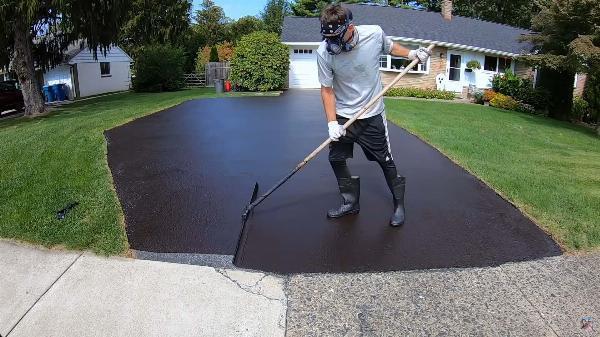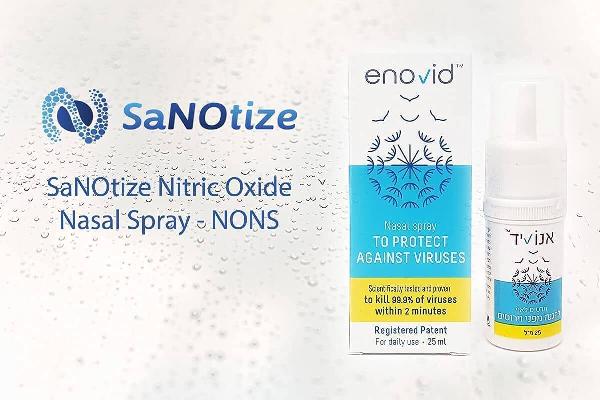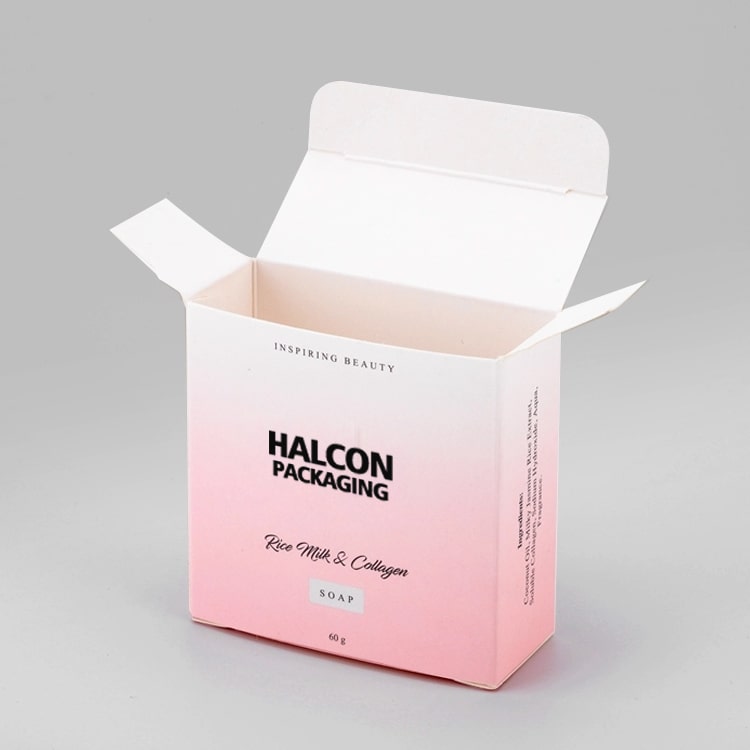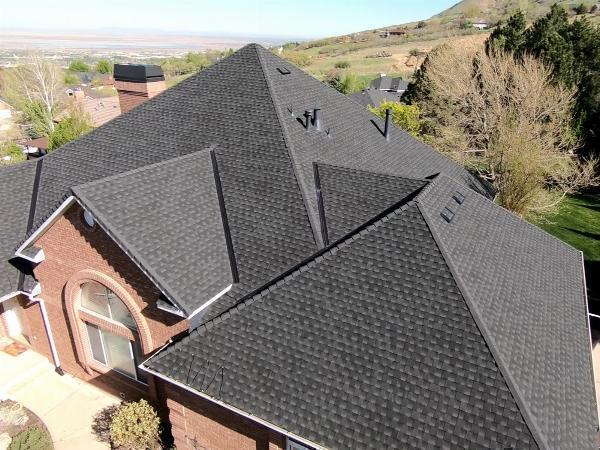Driveway Sealcoating | Protecting and Extending the Life of Your Driveway

Strong 8k brings an ultra-HD IPTV experience to your living room and your pocket.
When you look out your window and see your driveway, do you think about how to keep it looking great and lasting longer? If not, you’re not alone! Many homeowners overlook this essential aspect of home maintenance. But don’t worry; today, we’ll dive into driveway seal coating and explore how this simple process can make a huge difference.
What is Driveway Sealcoating?
Imagine your driveway as a sturdy shield protecting your home’s entryway. Over time, the elements can batter this shield. Driveway Sealcoating is like giving your shield a fresh coat of armour. It’s a protective layer applied over your asphalt driveway to help it withstand weather, chemicals, and wear and tear.
Why Sealcoat Your Driveway?
Think of sealcoating as a spa treatment for your driveway. It helps to:
Protect Against Weather: Sun, rain, and snow can all contribute to the wear and tear of your driveway. Sealcoating provides a barrier that helps prevent damage.
Enhance Appearance: It can refresh the look of an old, faded driveway, making it look new.
Prevent Cracks: Sealcoating helps to fill in minor cracks and prevent them from growing larger.
How Sealcoating Works
Sealcoating is like a shield for your driveway. It’s a liquid mixture that’s spread over the surface. Once it dries, it forms a protective layer. This layer helps to:
Prevent Water Penetration: Water can seep into cracks and cause damage. Sealcoating keeps it out.
Protect from UV Rays: The sun’s rays can cause the asphalt to break down. Sealcoating helps to block these harmful rays.
When is the Best Time to Sealcoat?
Timing is everything! The best time to seal coat your driveway is during dry, mild weather. Ideally, you should wait until late spring or early fall, when temperatures are between 50°F and 85°F. This ensures the sealant will cure properly.
How to Prepare Your Driveway for Sealcoating
Preparation is key to a successful seal coating job. Here’s how to get your driveway ready:
Clean the Surface: Remove all dirt, debris, and weeds. A clean surface helps the sealant adhere better.
Repair Cracks and Holes: Fill in cracks or holes with a suitable patching compound.
Allow the Surface to Dry: Ensure your driveway is completely dry before applying the seal coat.
DIY vs. Professional Sealcoating
When it comes to seal coating, you have two main options: do it yourself or hire a professional. Let’s weigh the pros and cons:
DIY: Cost-effective and satisfying if you enjoy hands-on projects. However, it requires time and effort.
Professional: Ensures high-quality results and saves you time. Professionals have the right tools and expertise.
Choosing the Right Sealant
Not all sealants are created equal. Here’s what you need to know to pick the right one:
Asphalt-Based Sealers: Ideal for asphalt driveways. They offer good protection and flexibility.
Coal-Tar Sealers: Durable and resistant to oil and chemicals. They’re also effective in preventing water penetration.
Applying Sealcoat: Step-by-Step Guide
Ready to get started? Here’s a simple guide to applying seal coat:
Apply Primer: If your sealant recommends, apply a primer to the surface.
Pour Sealant: Pour the sealant in sections, working from one end of the driveway to the other.
Spread Evenly: Use a squeegee or roller to spread the sealant evenly over the surface.
Allow to Dry: Let the seal coat dry for at least 24 hours before using your driveway.
Maintaining Your Sealed Driveway
Once your driveway is sealed, keeping it in good shape is important. Here’s how:
Clean Regularly: Remove leaves, debris, and stains.
Avoid Harsh Chemicals: Use mild detergents and avoid chemicals that can damage the sealant.
Check for Damage: Regularly inspect for cracks or wear and address them promptly.
Common Mistakes to Avoid
Here are a few pitfalls to watch out for:
Not Cleaning the Surface Properly: Dirt and debris can prevent the sealant from sticking.
Applying in Poor Weather Conditions: Rain or extreme temperatures can affect curing.
Skipping Repairs: Failing to repair cracks before sealing can lead to bigger problems.
Cost of Driveway Sealcoating
The cost of seal coating varies depending on several factors, such as:
Size of the Driveway: Larger driveways will cost more to seal coat.
Type of Sealant: Different sealants come with varying price tags.
Labour Costs: If hiring professionals, labour costs will add to the total expense.
Environmental Impact of Sealcoating
Sealcoating can have environmental implications. Most sealants contain chemicals that can be harmful if not managed properly. However, many modern sealants are designed to be more eco-friendly. Be sure to choose products that minimise environmental impact.
Longevity of Sealcoated Driveways
With proper care, a seal-coated driveway can last 2 to 5 years before needing another coat. However, factors like weather conditions, traffic, and maintenance can influence its lifespan.
Signs That Your Driveway Needs Sealcoating
How do you know when it’s time for seal coating? Look out for these signs:
Fading Color: If your driveway looks grey and worn, it might need seal coating.
Cracks and Potholes: If you notice new cracks or potholes, it’s time to reseal.
Water Penetration: If water starts pooling or penetrating the surface, it’s a sign that the seal coat is wearing off.
Conclusion
Driveway seal coating is a simple and effective way to protect and extend the life of your driveway. By investing a little time and money into seal coating, you can enhance your home’s curb appeal and save on costly repairs down the road. Whether you tackle the job or hire a professional, keeping your driveway in top shape is well worth the effort.
FAQs
How often should I seal coat my driveway?
You should seal coat your driveway every 2 to 5 years, depending on its condition and the weather.
Can I seal-coat my driveway in the winter?
No, it’s best to seal coat your driveway during dry, mild weather. Winter conditions can affect the curing process.
What should I do if it rains after the seal coating?
If it rains shortly after application, the seal coat may be affected. Ensure the sealant is completely dry before exposure to rain.
How long does it take for the seal coating to dry?
Sealcoating typically takes 24 to 48 hours to dry completely. Avoid using your driveway during this time.
Is seal coating safe for pets and children?
Once the sealant has dried completely, it is safe for pets and children to walk on.
Note: IndiBlogHub features both user-submitted and editorial content. We do not verify third-party contributions. Read our Disclaimer and Privacy Policyfor details.





